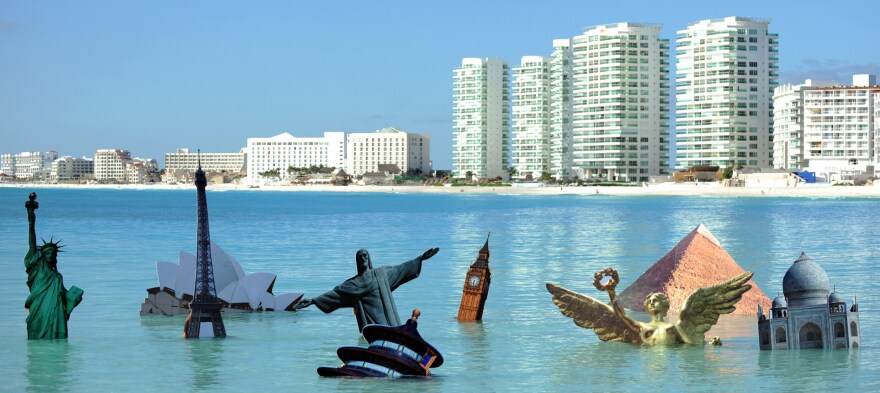May has been a demoralizing month for news about global warming. The third National Climate Assessment was released on May 6, with its bleak message that time is short if we hope to prevent catastrophic climate change. Soon after we learned that polar ice is irreversibly melting. And then there were fires and devastating floods to remind us that, yes, we are all at the mercy of the elements.
So, perhaps it's a surprise that May has also been one of the funniest months for climate change. On Last Week Tonight, John Oliver lampooned Americans for climate change denial and presented a "statistically representative" debate over climate change, one that reflects the distribution of opinions within the scientific community: three climate-change deniers versus Bill Nye ... alongside 96 lab-coat-bearing scientists, all crammed into one small studio set:
On The Colbert Report, Stephen Colbert admitted that he found climate change so terrifying that he left a carbon footprint in his pants. He advised viewers to "F**k It" and leave climate change for our grandchildren to sort out (along with saving social security and solving Mideast peace).
Maybe humor's just a way of coping with the (ironically?) chilling situation that we find ourselves in. Or perhaps it fits the simple formula — offered by Alan Alda's character in Crimes and Misdemeanors — that comedy equals tragedy plus time.
Unfortunately, one of the lessons from this month's climate news is that time is running out, or already has. So let's laugh while we still can. But let's also take action.
You can keep up with more of what Tania Lombrozo is thinking on Twitter: @TaniaLombrozo
Copyright 2021 NPR. To see more, visit https://www.npr.org.



